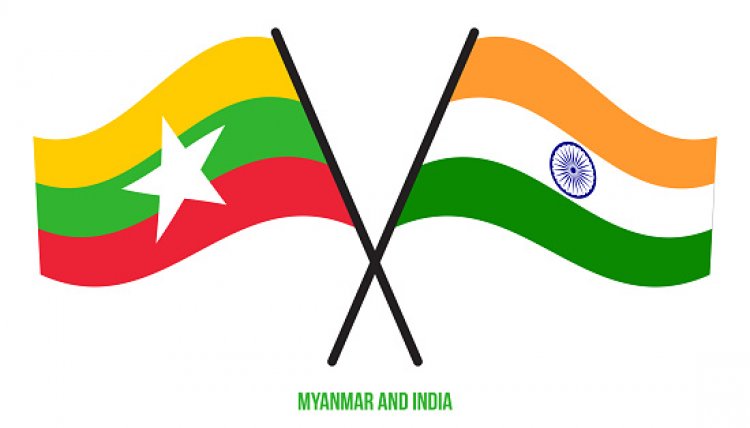India - Myanmar: Spillover of Myanmar Crisis into India
STORIES, ANALYSES, EXPERT VIEWS

All of Myanmar appears to be rebelling. Over the past seven weeks, insurgents have again swept across Myanmar. Led by the so-called Three Brotherhood Alliance—a coalition of ethnic militia, notably the Myanmar National Democratic Alliance, Ta’ang National Liberation Army and Arakan Army—Operation 1027 has succeeded in pushing the army out of an estimated 300 outposts and bases. A separate operation, code-named 1111, has seen army bases collapse across the Karenni state.
Fighting has extended to the border with Mizoram
Fighting has extended to the border with Mizoram, with Kuki National Army insurgents seizing a military outpost in northern Tamu on 11 December. Fleeing troops and insurgents have taken shelter across the border in India. In the view of Praveen Swami (contributing editor at ThePrint) “ethnic ties between Kuki and Mizo communities on both sides pose a threat that the conflict could spill over.”
Ever since the Myanmar military regained control of the State in 2021, India—like China and other nations in Southeast Asia—has seen its power as a kind of necessary evil. The military is seen, by many diplomats, as the only force that can hold the country together in the face of competing ethnic militia, often with deep links to crime and drugs.
However, the unprecedented success of the insurgent campaign has led political scientists and analysts of Myanmar, like scholar Zachary Abuza, to suggest the collapse of the military regime is increasingly likely.
A correct alignment of the planets and stars could mean democracy is restored to Myanmar, but warns Swami “the slightest misjudgments could unleash a terrifying new era of narco-empires on India’s sensitive eastern borders.”
In 1962 Myanmar experienced its first military coup d’etat, the country became locked in a deadly mix of ethnic warlordism, and military authoritarianism. The ethnic militia and the Generals fought, made truces, and built personal fortunes, scholar Maung Aung Myoe notes—all under the shadow of an expanding drug trade.
Dependance on China
Even though Myanmar’s military has been historically suspicious of superpower neighbour China, Swami writes “the country is dependent on its ties to the People’s Republic. Even though India’s hopes of building a transport corridor linking its Northeast remained stalled by insurgent violence and extortion, the ethnic armies fighting the military have pledged to protect Chinese investments – from crude oil pipelines to casinos. The military, for its part, embraced Beijing’s Belt and Road Initiative (BRI) after the coup.”
Experts have suggested that the genesis of the insurgent offensive might lie in the military’s unwillingness to act against organised crime cartels in the Kokang region, which were given safe haven to engage in online scams and illegal betting operations. The Generals themselves allegedly profited from these criminal enterprises, making them cooperate with China’s law-enforcement efforts.
This argument is disputed by other analysts, like Nian Ping, who say that Beijing is deeply committed to the regime’s survival. As the only easy point of connection to the Indian Ocean for China’s southern provinces, Myanmar has enormous strategic significance for the People’s Republic. The democratic opposition’s links to the West, moreover, gave China reason for suspicion about the motivations of insurgent groups.
Either way, “China seems set to benefit from the crisis in the short term. The country is currently brokering talks between the military and the Three Brotherhood Alliance and has called for a ceasefire. As the principal supplier of weapons—illegal and legal—to both parties in the conflict, China is well-positioned to assert its influence.”
India’s concerns and options
For exactly that reason, Swami states “the crisis confronts India with a difficult strategic conundrum. Three decades ago, India was compelled to sacrifice its ties with insurgent groups like the Arakan Army, in a deal that involved the Myanmar military acting against insurgents in the Northeast. The ongoing violence in Manipur has flagged the real and present threat those insurgencies could ignite again, making the military in Myanmar a valuable ally.
“At the same time, the local influence of ethnic armies, and their ties to communities in the Northeast, mean India cannot alienate them, either. In Mizoram, once home to one of India’s most bitter ethnic conflicts, sentiment on the issue runs deep. And New Delhi can’t be seen as siding with the junta over its own citizens.
“Finding a way to negotiate these competing interests won’t be easy—and perhaps even prove impossible. Escalating warfare can make it impossible for India to indefinitely defer taking sides.”
















